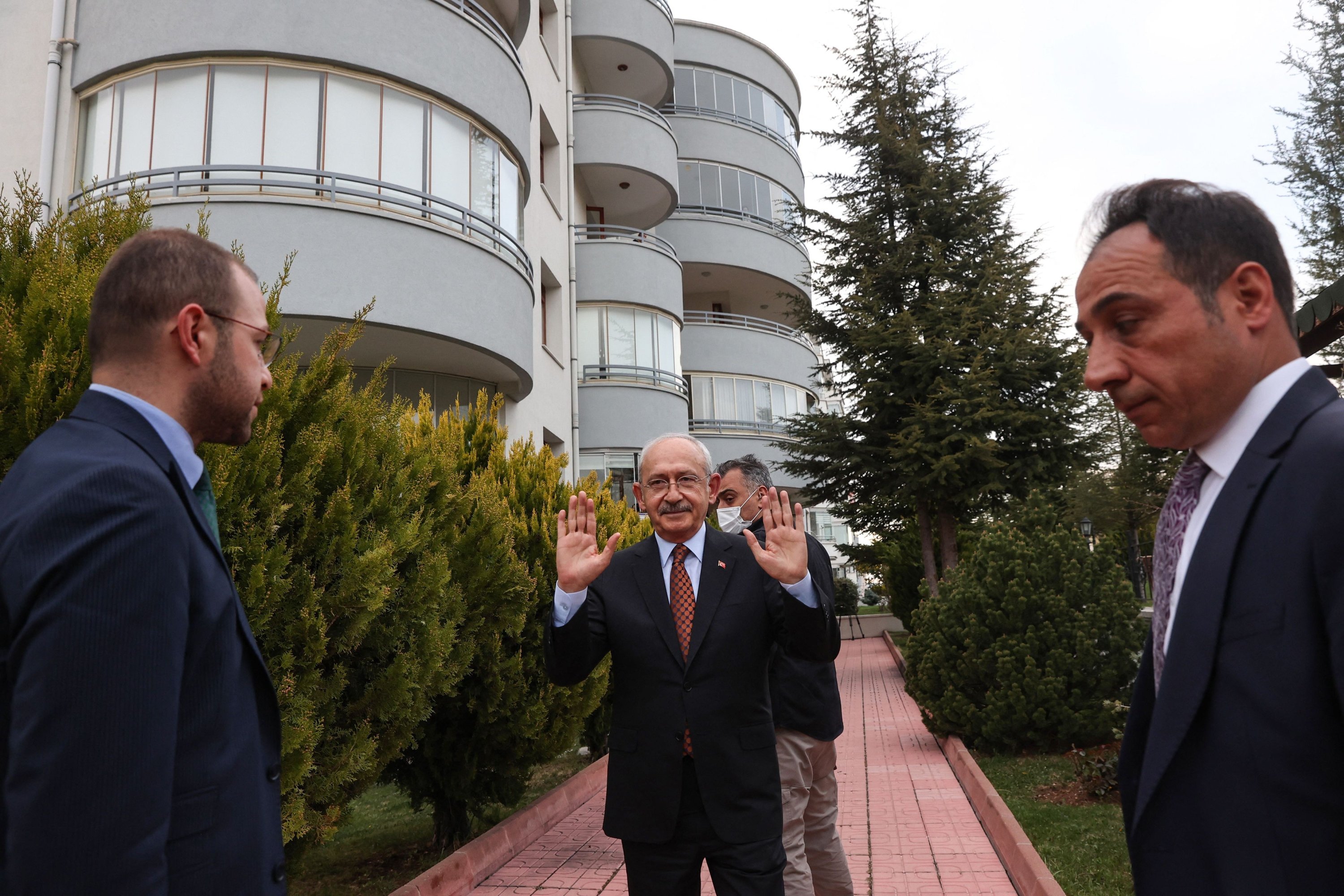
The head of Turkey’s main opposition party said the electricity to his home was cut off on Thursday, more than two months after his refusal to pay his power bills over price hikes.
Republican People’s Party (CHP) leader Kemal Kılıçdaroğlu in February said he would not pay his power bills until the government retracts price hikes, in a move that was slammed by President Recep Tayyip Erdoğan’s ruling party as a provocation.
Kılıçdaroğlu announced on Twitter on Thursday that he now had no lights on at home.
"I just got news from my wife – they cut off our electricity today,” he said in a video message recorded from his office.
"My actions are not a call to civil disobedience. It is resistance," Kılıçdaroğlu said.
"My actions are meant to represent the voice of families and children of a country that has been left in the dark."
"Energy is a basic human right. I wanted to be the voice of those who cannot pay," he added.
"Four million families have had their power supply cut off, and we wanted to stand in solidarity with them," his wife Selvi told reporters with a smile on Thursday.

Kılıçdaroğlu staged impromptu press conferences outside government buildings and claimed that ministers were either ignoring or underreporting the scale of Turkey's problems.
Erdoğan and his ruling Justice and Development Party (AK Party) have accused Kılıçdaroğlu of trying to stir up street protests and social upheaval by refusing to pay his bills.
Turkey's heavy dependence on imports of energy, raw materials and many food supplies has left it vulnerable to volatility in the exchange rate and increases in prices.
Turkey raised electricity prices by as much as 125% for high-demand commercial users and by around 50% for lower-demand households at the beginning of January.
The annual consumer inflation leaped to 61.14% in March, according to official data, fueled by rising energy and commodity prices and the fallout of the Russia-Ukraine conflict.
To counter rising prices and soften the impact on households, the government raised the minimum wage by 50% for 2022. On the other hand, prices of gas, power, petrol and road tolls also increased to account for import price volatility.
Turkey in February introduced several value-added tax (VAT) cuts and subsidized a significant amount of electricity bills.
It introduced a tax cut on basic food supplies to 1% from 8% and on electricity used for residential and agricultural irrigation purposes to 8% from 18%.
The authorities have readjusted the level under which higher electricity tariffs for households using more energy kick in.
The monthly limit has been increased to 240 kilowatt hours (kWh), up from the 210 kWh level that was set as of February after it was revised upward from 150 kWh.
Under the new charges after the tax cut, households are subject to pay TL 1.26 per kWh for as much as 240 kWh per month, and TL 1.89 above that limit.
Earlier charges saw households being subject to pay TL 1.37 and TL 2.06, respectively.
The government said it would grant state subsidies to 4 million households in the country of more than 84 million people to help with high natural gas and electricity bills.
Civil society organizations will no longer pay the higher energy tariffs that apply to businesses, while some small businesses are also able to benefit from readjusted tariffs.
